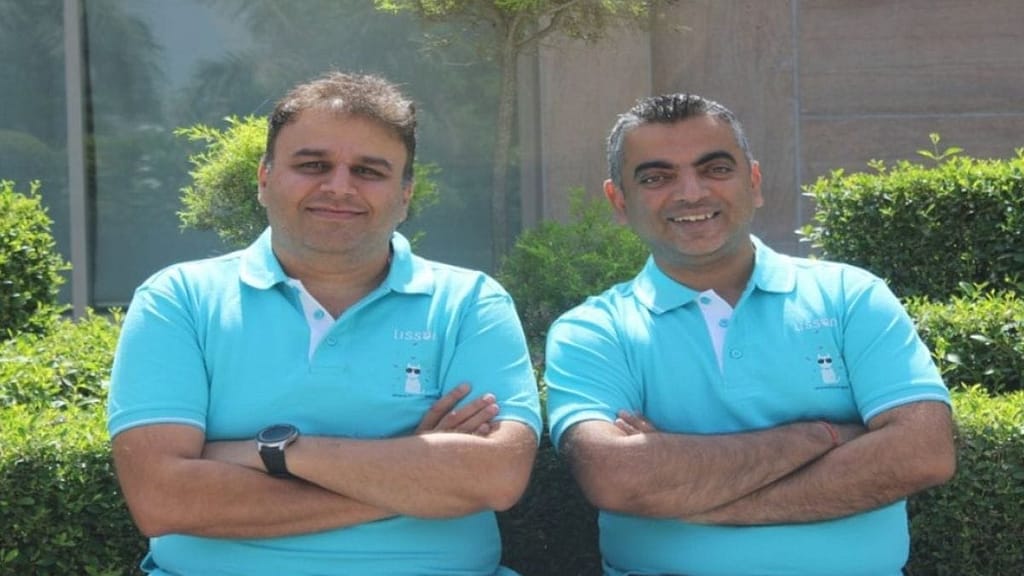Lissun, a tech-enabled mental and emotional health platform, supports people and corporate in fulfilling their mental health needs. Krishna Veer Singh and Tarun Gupta founded the health-tech startup in 2021. “Awareness, Acceptance, Anonymity, Access, Affordability, and Assurance are the values we cherish. Let’s finally empower you with our mental wellness solutions!” that’s what Lissun said. Let’s learn more about the venture from its CEO & Co-founder, Krishna.
According to you, what is the most considerable stigma related to mental health?
Despite significant strides in our comprehension of mental health and its management, pervasive societal attitudes endure, perpetuating discriminatory stereotypes and negative perceptions of those struggling with mental health disorders. One of the most significant stigmas surrounding mental health is the notion that it signifies a personal failing or weakness. This misconception may cause individuals to feel ashamed and powerless. Additionally, the widespread belief that individuals with mental health disorders are unpredictable and dangerous perpetuates a negative stereotype that further contributes to the stigmatization of those grappling with such conditions. Lastly, the stigma surrounding seeking professional help for mental health disorders can prevent individuals from accessing the resources they need to manage their mental health effectively.
What do you believe would be the next generation’s response to the rising awareness towards mental health?
In light of the growing awareness of mental health and its significance in contemporary society, one could reasonably argue that the succeeding generation’s response to this issue may be characterized by a heightened sense of sensitivity, understanding, and empathy towards individuals struggling with psychological disorders. This generation, having grown up in an era that increasingly acknowledges the importance of mental health, may be more inclined to view mental health as a critical component of overall well-being and accord it the same significance as physical health. It is conceivable that this cohort may actively engage in efforts to eliminate mental health stigma, foster more supportive environments, and advocate for access to quality mental health care, thus paving the way for a more equitable and compassionate society. How can one maintain healthy mental health?
How can one maintain healthy mental health?
Maintaining optimal mental health is a multifaceted endeavour requiring a holistic approach encompassing various dimensions of an individual’s life. One can promote healthy mental health by adopting healthy lifestyle habits, such as regular exercise, adequate sleep, and a balanced and nutritious diet. Additionally, engaging in mindfulness practices, such as meditation, yoga, and deep breathing exercises, can help one cultivate a more centred and calm state of mind. Nurturing healthy relationships, seeking social support, and engaging in fulfilling activities that align with one’s values and interests can also contribute to positive mental health outcomes. Seeking professional help, when necessary, is crucial to managing mental health challenges and preventing them from escalating.
What is the most significant workplace conflict or stressor?
In the context of modern workplaces, the most significant stressor or conflict that often takes centre stage pertains to the pervasive and persistent pressure to meet ever-increasing demands, targets, and expectations. This stressor, which is often compounded by a fast-paced, competitive work environment, can have detrimental effects on an individual’s physical and mental health, leading to burnout, anxiety, and other stress-related disorders. Additionally, interpersonal conflicts that stem from differences in communication styles, work styles, and values can also contribute to workplace stress and tension, further exacerbating the negative impact on employee well-being and organizational performance. Given the pervasive nature of these stressors and conflicts, proactive measures to mitigate their impact, such as fostering a supportive and inclusive work culture and implementing stress management interventions, are crucial for promoting employee well-being and organizational success.
People are anxious, stressed, and depressed. What could we do to protect their mental health, if anything?
The prevalence of anxiety, stress, and depression underscores the urgent need for concerted efforts to protect and promote mental health. One could argue that several preventive measures, such as raising awareness about mental health, reducing mental health stigma, and implementing mental health interventions, could effectively protect individuals’ mental health. Additionally, providing access to quality mental health care, counselling services, and psychotherapy can help individuals manage their mental health challenges and prevent them from escalating. Furthermore, fostering supportive and inclusive environments, such as in schools, workplaces, and communities, can help individuals feel more connected and less isolated, thereby mitigating the negative impact of stress and depression.










